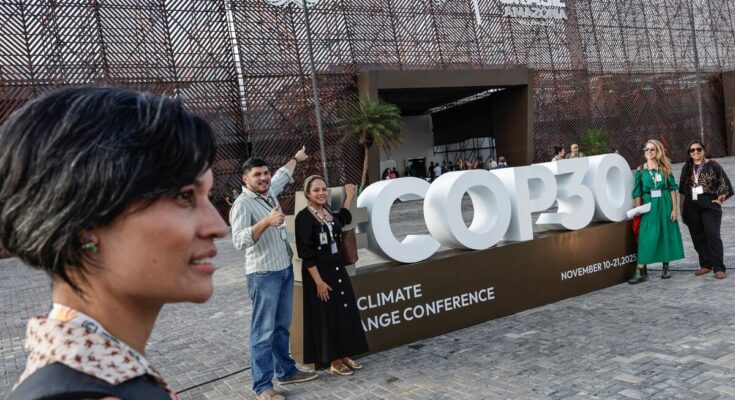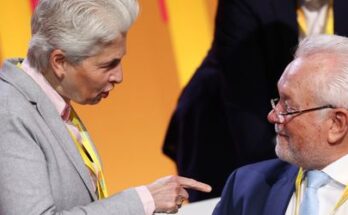The COP30 climate summit begins this Monday in Belém (Brazil) amid strong ideological resistance to tackling the climate crisis fueled by denialist populism. Ten years ago, 195 countries signed a historic agreement in Paris in which they committed to ensuring that temperatures did not increase by 2 degrees above pre-industrial levels and, as far as possible, did not exceed 1.5 degrees. To achieve this goal it was essential to significantly reduce greenhouse gas emissions. However, the world has remained tied to the use of fossil fuels: 2023, 2024 and 2025 are the three hottest years on record. Last year, when the concentration of CO₂ in the atmosphere grew at record speed, that 1.5 degree limit had already been reached and it is inevitable that it will be exceeded over the next decade.
In the urgency of reversing this trend, Trump’s return to the White House has given wings to denialism across the planet. In January the United States decided to withdraw from the Paris agreement for the second time, explicitly dissociated itself from the United Nations report on emissions and threatened tariffs on countries that support an environmental tax on shipping. Trump has decided not only to turn his back on science, but to abandon the fight against an existential threat to humanity.
In its wake, the rise of the far right has led, especially in the EU, moderate conservative parties to backtrack on environmental policies. A good example is that the reform of the European Climate Law, agreed last week, maintains the 90% reduction in emissions by 2040 compared to 1990, but includes concessions to reluctant partners, a reduction of ambitions in which large states such as Germany or France have played a key role.
The Belém meeting therefore opens with gloomy prospects of reaching agreements of minimal importance. The United States, responsible for 11% of global emissions, is boycotting the summit, while China, the world’s largest emitter, India and Russia – between them accounting for nearly another 43% of emissions – are sending second-tier delegations. 115 of the 195 signatories of the Paris Agreement did not fulfill their commitment to present emissions reduction targets for 2035 to the United Nations. The previous meeting, a year ago in Baku, had already ended with a limited agreement that fell well short of what developing economies required, but at least showed a resilience of multilateralism that is much more indispensable this time.
The hope – and paradox – is that the world has never been in a better position to transition away from fossil fuels, thanks to the advancement of renewable energy and electric mobility. A strong message in this sense must come from Belém. The battle is not ideological, but for simple survival.



